
The new Cold War also known as Cold War 2.0 is characterized by simmering tensions, breach of international norms, proxy wars and an arms race between the US on the one hand and major powers such as China and North Korea in the Indo-Pacific, Iran in West Asia and Russia in Eurasia on the other. For instance, Russia's assertion of sovereignty over Ukraine and prolonged war with the latter since February 2022 pushed the US towards an armament race with Russia and the American administration kept supplying updated arms and ammunitions to the Ukrainian regime in a bid to contain Russia. In the post-Cold War era, neither the world emerged completely unipolar, nor did any world society become firmly established. On the contrary, a large grey area emerged where states moved from the pro-US foreign policy or clear anti-US or restricted foreign policy to a more independent foreign policy. While China is the key challenger to the US power and the most important player in the new Cold War, many other regional powers challenged American predominance in different parts of the globe and maintained friendly relations with China. Primarily, the US began to face challenges from rising and revisionist China, assertive Russia and from recurring threat of Iran's nuclear ambitions. While many experts define the American arms race and rising tensions with China as the new Cold War, others define it as the tensions and arms competition arising from the sharing objective of multiple regional players challenging the American hegemony.
Changing Dynamics
While the Cold War referred to power competition and arms race between two superpowers the US and the USSR, the new Cold War involves multiple players such as China, Russia and Iran who seek to defy American hegemony and cooperate with one another to challenge the power position of the US.
Diese Geschichte stammt aus der April 2024-Ausgabe von Extraordinary and Plenipotentiary Diplomatist.
Starten Sie Ihre 7-tägige kostenlose Testversion von Magzter GOLD, um auf Tausende kuratierte Premium-Storys sowie über 8.000 Zeitschriften und Zeitungen zuzugreifen.
Bereits Abonnent ? Anmelden
Diese Geschichte stammt aus der April 2024-Ausgabe von Extraordinary and Plenipotentiary Diplomatist.
Starten Sie Ihre 7-tägige kostenlose Testversion von Magzter GOLD, um auf Tausende kuratierte Premium-Storys sowie über 8.000 Zeitschriften und Zeitungen zuzugreifen.
Bereits Abonnent? Anmelden

AI in Diplomacy
How Technology is Transforming International Relations
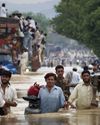
Climate-Induced Migration A Growing Concern for South Asia
One of the most difficult issues facing the world amid the polycrisis is climate change.
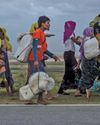
Climate-Induced Migration: A Growing Crisis in South Asia
People have been migrating over the years for various reasons.
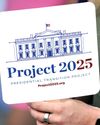
PROJECT 2025 A Blueprint for a Second Trump Administration
With former President Donald Trump defeating Vice President Kamala Harris in the race for the White House, there is a policy agenda crafted in the run-up to the election that its organizers say is ready for the next Republican to hold the presidency called “Project 2025”.
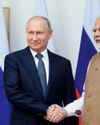
The India-Russia Partnership
Adapting to a Multipolar World Order

Sustainable Development Goals 2030
India's Progress and Challenges
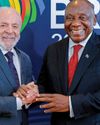
South Africa's G20 Presidency
The G20 is on, and all eyes are on South Africa, the anchor runner on Relay Team South, much as all eyes were on V.K. Vismaya when she grasped the baton from Arita Gayakwad during the 2018 Asian Games.
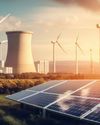
RENEWABLE ENERGY
India's Path to a Sustainable Future

Indonesia's Approach to the Global South and Its Implications in the Indo-Pacific Region
Indonesia occupies an important and significant position in the Global South, and its important geo-strategic position in the Indo-Pacific region will impact the geopolitics of the region and the Global South.

Promoting Ethiopia to India - the biggest Potential in Africa
Recent reforms in the banking sector have further bolstered Ethiopia's investment climate. The National Bank of Ethiopia has revised longstanding policies, now permitting international banks to operate without restrictions.